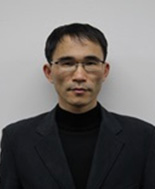Professor

Prof.
-
연구분야
Environmental Biotechnology, Bioenergy
-
Degree
Ph.D. Env. Engin., Univ. of Michigan
-
Office
W1-2 4206
-
Tel
+82-42-350-3629
- 홈페이지
-
Track
Sustainable Environment
- Google Scholar https://scholar.google.co.kr/citations?hl=ko&user=A9wVGI4AAAAJ&view_op=list_works&sortby=pubdate
Professor Han's research seeks microbially-mediated solutions for critical environmental issues, such bioenergy production, biopesticides, and bioremediation. His past studies have focused on the cultivation of microbial strains possessing the abilities to suppress bacterial pathogenesis via the interference of qourum sensing or to degrade recalcitrant contaminants including polynuclear aromatic hydrocarbons (PAHs). His current studies are focusing on the isolation of bacterial species and/or consortia that have the exceptional abilities to produce bioenergy such as electricity or bioethanol from wastewaters and biomass. He has applied that use of a number of physiological, chemical, and molecular genetic techniques to his studies, underscoring the utility of both classical and newly developed methods in the pursuit of fundamental questions in Environmental biotechnology.
Education∙ M.S. Biochemistry, Seoul National Univ. (1993)
∙ Ph.D. Environmental Engineering, Univ. of Michigan at Ann Arbor (2002)
∙ 2002~2004 Postdoctoral Researcher, Caltech
∙ 2004~2007 Assistant Professor, Renssealaer Polytechnic Institute
∙ 2008~2013 Assistent Professor, Dept. of Civil & Env. Eng.,KAIST
∙ 2013~2019 Associate Professor, Dept. of Civil & Env. Eng., KAIST
∙ 2019~present Professor, Dept. of Civil & Env. Eng., KAIST
∙ Cellulosic bioethanol production
∙ Hydrogen production from water via an innovative electrolysis approach
∙ Biocontrol through the interference of quorum sensing (bacterial communication) called quorum quenching
∙ Bioremediation and microbe-assisted phythoremediation (e.g., cleanup of oil spill)


